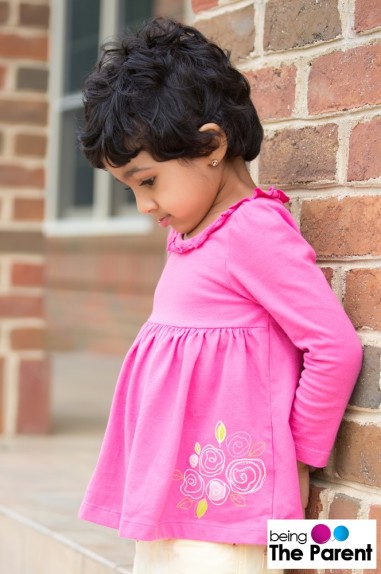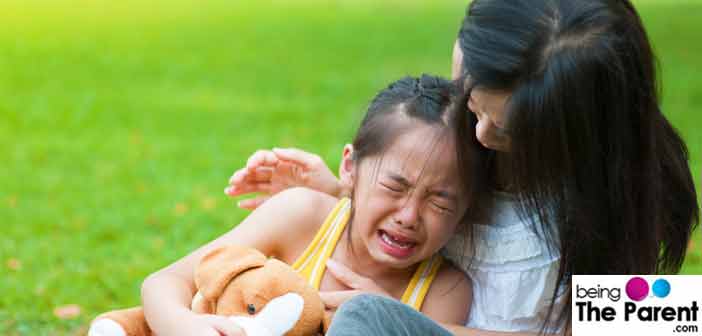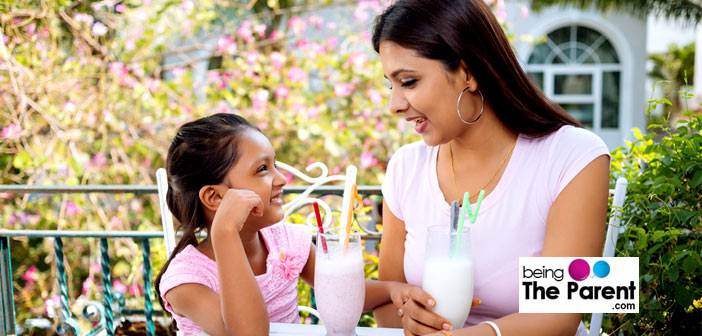
The Human Rights Watch reports that more than 7,200 children, including infants, are raped every year in India; experts believe that many more cases go unreported. Statistics suggest that more than 50% of children are sexually abused in India alone. Sounds alarming? Well, yes, our children are suffering from a hidden epidemic of child abuse and neglect. It’s a widespread war against our children that we have the power to stop, and understanding the issue is the first step.
- Why Emphasize On Touch?
- How To Teach A Child About A ‘Good Touch’?
- How To Teach A Child About A ‘Bad Touch’?
- What Should Parents Watch Out For?
- Talking To Your Child About Child Abuse
- Educating Toddlers About ‘Good Touch’ And ‘Bad Touch’
Why Emphasize On Touch?
Touch is one of the most incredible and vital senses. The first sense developed at embryonic stage which works till ripe age. Not only touch connects our nerve endings undergoing stimulation, but also the way we interpret it is significant. Many sexual predators make touch a way to abuse children, and that is why it is imperative for every parent that children are educated about a good and a bad touch. When it comes to child abuse, the problem needs to be recognized and addressed by parents. Often, parents feel that their child is safe from any sexual abuse – but the statistics show that atrocities of child abuse are not limited to any one strata of society – child abuse is, unfortunately, happening everywhere.
It may be mentioned here that inappropriate touching of body of or by a child can have similar devastating effects as rape. Unfortunately, some parents refuse to believe that an uncle or a close friend has been touching their child in a wrong way, unless, the episode gets translated to heinous crimes like rape or physical abuse.
How To Teach A Child About A ‘Good Touch’?
When you teach your child about touch, you need to ensure that neither you nor the child becomes paranoid. Children are very, very impressionable, hence you need to explain the child what a good touch feels like, and how to know when someone is touching in a ‘good way’. A good touch is something that doesn’t make a child feel uncomfortable and is healthy for a child, such as:

- A pat on the back shoulder or the head
- Friendly hugs or kisses on the forehead or cheeks
- Ruffling of hair
- High fives or hand shakes
Always ensure that you tell your little ones these examples in a nice, friendly environment. Hold your child’s hand or cuddle him when you are explaining anything related to abuse.
It is also important to observe anyone who is close to the child to be sure. Many child abusers groom a child first, beginning with good touches and gain the confidence of the child. When they get the chance to sexually abuse, the child is left in a state of shock owing to their confidence levels, and parents deny because they have always seen the perpetrator loving the child.
How To Teach A Child About A ‘Bad Touch’?
Anything that makes the child uncomfortable, feel ashamed, painful, or inappropriate in any way. You need to educate a child about his or her private parts early in life, and explain that when Mamma touches you, it is for cleaning, (like while bathing), but no one else should be allowed to touch the child the same way. A bad touch can be characterized as follows:
- Touching the private parts of the child/exposing the child to someone else’s private parts
- Kissing on the lips or mouth to mouth
- Patting or rubbing of the upper thigh near the groin area or the buttocks
- Poking the inside of the underwear area
It must be understood that children, young or small, have a right on their body and to say “NO” to anyone for touching them if it makes them uncomfortable. They decide who can touch, kiss or hug. Stop insisting and pushing children, citing that they are either being unreasonable or sheepish.

What Should Parents Watch Out For?
Pick up any newspaper and pieces of horrendous sexual crimes against young children will tear you apart. As parents, we need to sensitize our kids regarding ‘good touch, bad touch’ and though it could be uncomfortable (why cannot kids be like kids anymore), yet we need to shed out our inhibitions and hesitations and speak to our children. Apart from this, parents also need to closely watch those who are close to a child and raise an alarm if they feel something is inappropriate. As parents, look out for adults who:
- Invade or refuse privacy to a child
- Cuddles or hugs a child, even when the child protests
- Spends more time with children instead of adults, or insists on alone, special time with kids
- Buys expensive gifts for kids for no reason whatsoever, or puts in a lot of effort to get closer to kids
- Makes you feel uncomfortable, there is something about him that you do not like though you do not know what
- Your child or other kids feel afraid or uncomfortable when he is around
Trust your intuition and if you feel someone fits the radar here, draw a very clear line and see to it that your child does not need to spend time with this person. Just think, if you will be a little vigil and judge your child’s discomfort with a person, wouldn’t it save your child from a zillion thoughts and trauma?
Talking To Your Child About Child Abuse
You do not have to talk about sex, just educate the child about his or her body, and inform about the dangers. Be sure not to cause anxiety, however. Read about CHILD ABUSE here.
Today, with both the parents working, kids spend utmost time with strangers either in crèches or with house helps. As heartbreaking as it may sound, child sexual abuse is happening everywhere – homes, schools, child-cares, playgrounds, and many other places. It’s our responsibility to educate kids about sexual violence and impede putting the entire load on their shoulders. Stop creating taboos around sexuality; ensure children know whom to approach if they are troubled or apprehensive. Children should be able to freely communicate with parents or trusted adults (one with whom the child can freely confide his fears/apprehensions).
Remember this : A child needs to be educated about touch, and not necessarily sex.
Educating Toddlers About ‘Good Touch’ And ‘Bad Touch’
- Teach the body anatomy including private parts so it’s easier for them to explain
- No one should ask them to show/ see/ rub/ their/other’s private parts
- It is unacceptable to either take or show nude pictures or videos
- Known perpetrators are close to family (adults/kid). They start by rubbing or stroking their back/hair/face, which is not covered by costume. The child fails to understand the abuse. If the kid is apprehensive about someone, parents should take an immediate note
- Teach neither go with strangers nor accept any gifts
- Teach good and bad secrets by giving examples like – Birthday party, surprise is a good secret as it makes everyone happy, but uncle touching the underwear is a bad secret as it makes you unhappy

- Anything that makes them uncomfortable or sad is a bad secret and must be immediately shared with the safety network
- Encourage children to pick adults, they trust upon, share and ready to listen, help. Tutor children how to solicit help from trusted networks
- Maximum one family member should be in the child’s safety network; the other should live outside the immediate family circle
- Good communication with children implies openness, determination, straightforwardness and a friendly, non-intimidating atmosphere. Be patient and empathetic. Don’t show your anger or upset mood. They might withheld the information and feel guilty
- Teach to run away from the person whose touch they dislike. Scream, call for help. Never stay alone with that person
- Try educating through cartoon presentations/pictorial stories so it becomes easier for understanding and explanation
Help lines are available globally to prevent child abuse. Child help line number is 1098 for India
As parents, we are responsible to make our children distinguish between right and wrong. We need to shed our inhibitions and talk to our children without being judgmental. Let your child decide whom, he wants to stay with. Never push your children and respect their feelings. We all know child abuse exists, let us ensure that none of us let this happen to our children. Living in denial that my child can never be abused will not do any good, but acting and preparing the child to deal with perpetrators of such lowly intentions will surely make a marked difference to you, us and the society at large.


2 Comments
Nice
Need of the hour.